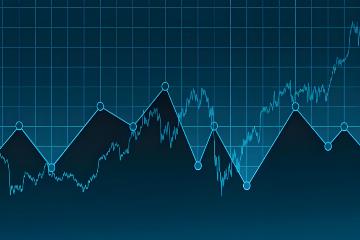- Finance
- December 23, 2024
- (99) comments
Economist Urges BOJ to Hike Rates Now
Advertisements
In recent discussions surrounding Japan's monetary policy, a prominent voice has emerged from the academic worldHiroshi Yoshikawa, an esteemed economics professor and former advisor to the Prime Minister of Japan, has taken a bold stance urging the Bank of Japan (BoJ) to raise its benchmark interest rate sooner rather than laterHis warnings come amidst growing concerns that the central bank might be trailing behind in the face of evolving economic conditions.
Yoshikawa, who boasts a close friendship with the current BoJ Governor Kazuo Ueda that spans nearly six decades, has expressed his belief that timely action is essentialHe states, “The Bank of Japan would be wise to act soonerIn a way, they may already be falling behind.” This statement reflects a critical assessment of the BoJ’s current monetary stance, particularly given the global economic landscape characterized by rising inflation rates in major economies.
The backdrop of Yoshikawa's comments is a pivotal moment for the BoJ, which has traditionally maintained ultra-low interest rates to support growth in the world's third-largest economy
Advertisements
However, as the market prepares to gauge whether the BoJ will implement an interest rate hike in the upcoming meetings, anticipation is palpable among investors and analysts alikeFollowing an announcement by the Bank of Japan's Deputy Governor Ryozo Himino, who is set to address local business leaders in Yokohama next January, speculations are brewingHistorically, such engagements have been unusual, particularly before the BoJ's first monetary policy meeting of the year, which adds another layer of intrigue to the timing of potential policy shifts.
Despite initial hopes for a December rate increase, market expectations have cooled following Yoshikawa's insightful analysisHe emphasizes that the current benchmark rate of 0.25% is exceptionally low given Japan’s economic climate and argues that barring significant economic disruptions, a rate hike should be a rational step“This isn’t a hawkish stance; it’s a reasonable approach,” he firmly asserts
Advertisements
His comments highlight the persistent concerns regarding Japan’s inflation trajectory, which, for much of the year, has mirrored rates seen in the U.Sand Europe.
However, it is crucial to note that while Yoshikawa sees value in raising rates, he cautions against the implications of such a moveThe risk of economic downturn or even a crisis looms large as the Bank navigates the complexities of normalizing monetary policy“The possibility that the Bank of Japan might be forced to lower rates in the future cannot be ignored,” he warnsWith a bench mark of 0.25%, the only way is down, implying that proactive rate adjustments are essential to ensure that the central bank maintains flexibility in its responses to economic shifts.
This viewpoint resonates with Governor Ueda's recent remarks, where he too acknowledged the necessity of having room to maneuver should economic conditions worsen
Advertisements
Ueda highlighted that unconventional measures could not entirely replace conventional monetary policy tools, advocating for a balanced approach to interest rate management.
As traders dissect the current economic landscape, there is a palpable shift in sentiment regarding the Bank of Japan's immediate monetary directionWith just a 28% perceived likelihood of a rate hike this month—down from an earlier estimate of 66%—confidence in an imminent increase is waningMoreover, Citigroup has revised its outlook, delaying expectations for a December hike to January of the following year, shedding light on the lack of urgency for the BoJ to act under present conditions.
Market analysts are underscoring the alignment of Japan's economic performance with the BoJ's projectionsRecently released data indicates that Japan's GDP growth in the third quarter has exceeded earlier forecasts, and key inflation indicators have consistently hovered around or above the central bank’s 2% target for over two years
- China Chips Away at Global Semiconductor Slump
- Japan's Semiconductor Industry: Can It Rebound?
- U.S. and European Markets Close Lower
- Surge in Chinese Assets!
- Is the U.S. Planning to Build a Bitcoin Reserve?
Yoshikawa points out, “The Bank of Japan is essentially suggesting that inflation is not yet sufficientI wonder if there are others in Japan who share this perspective.”
In conclusion, Yoshikawa underscores that his views are independent and come without insider knowledge, asserting a fundamental principle of monetary policy: flexibilityHe states, “The Bank of Japan seems a bit overly cautiousThe crucial aspect of monetary policy is adaptabilityIf the economic situation changes post-rate hike, they can promptly lower rates againYou shouldn’t view that as a failure.”
This call for adaptability reflects a broader need for potential policy re-evaluation as Japan grapples with a delicate balance of fostering growth while managing inflation pressuresAs the global economy continues to evolve rapidly, the BoJ's next moves will be closely scrutinized, with stakeholders keenly aware of the challenges that lie ahead.
